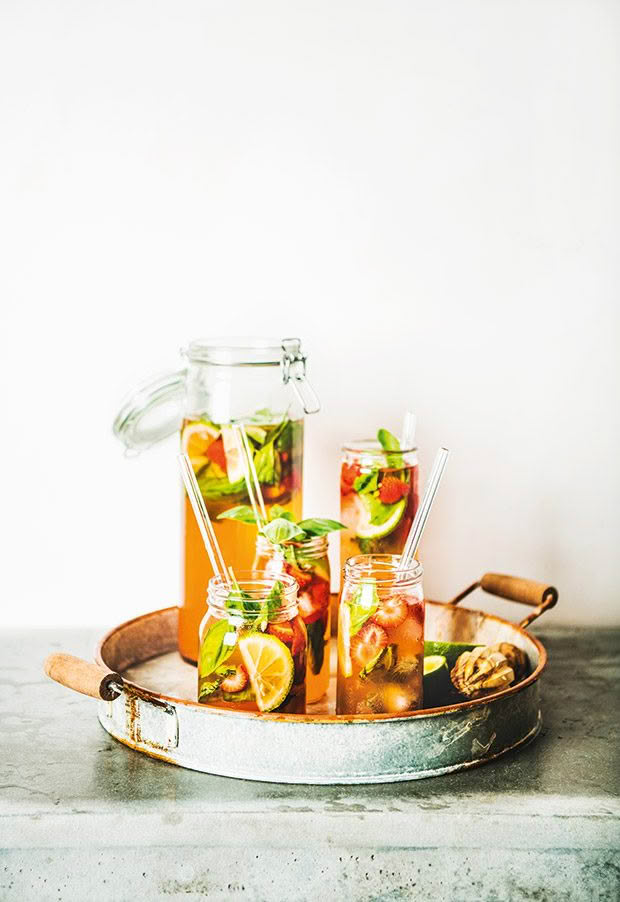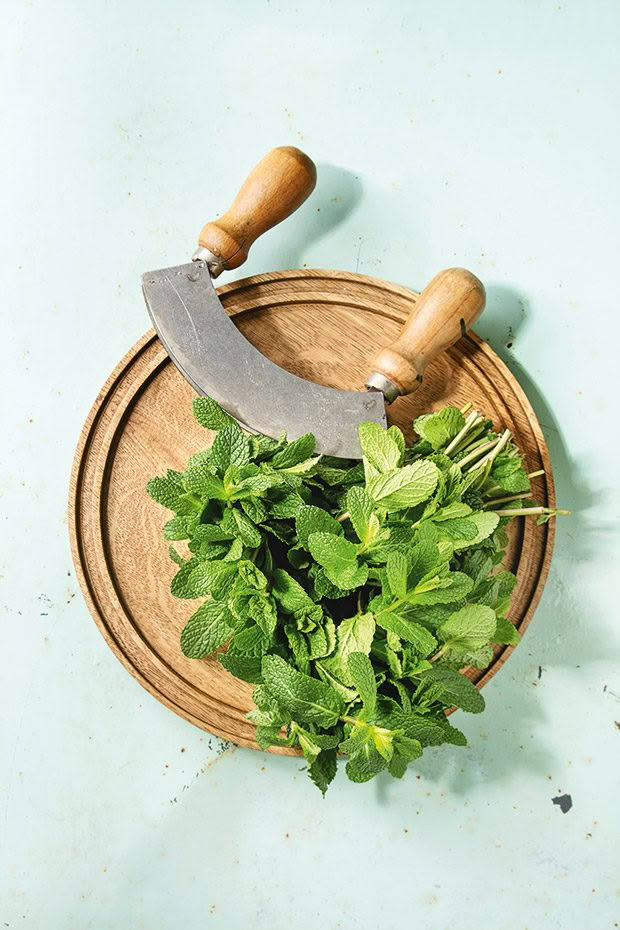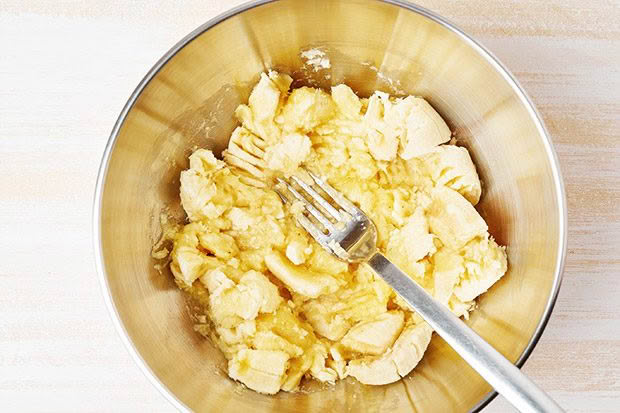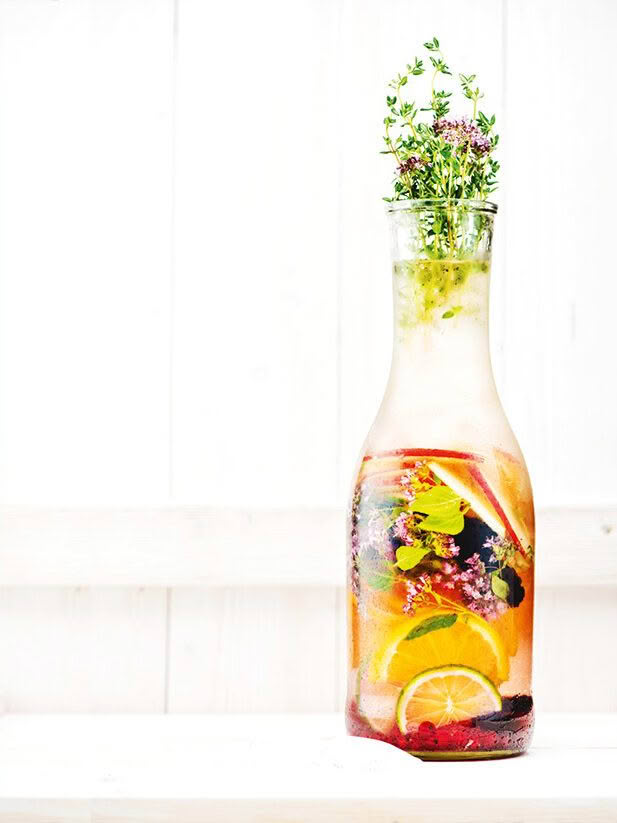DIY: How to make homemade extracts with fruit and herbs

Turn fruit and herbs into flavours you can use all year round.
Words: Jane Wrigglesworth
If you’re an avid cook, you probably use several food extracts in your baking. I frequently use vanilla, almond, peppermint, orange, and lemon extracts in cakes and icing. I’ve even used coconut extract when a recipe has called for coconut milk, and I didn’t have any; just mix coconut extract into plain milk as a great alternative.
It’s easier and cheaper to buy vanilla, almond, and coconut extracts than make your own. But if you have plenty of fruit or herbs, you can easily make other extracts yourself.
Extracts are a simple and easy way to create incredible flavourings that are far superior to the ones you can buy. You control the strength, quality, and taste combinations.
There are no artificial colours or preservatives, and it’s a great way to preserve the flavour of crops for out-of-season use. All you need are two ingredients: the fruit (or herb or nut) and alcohol. The only ‘equipment’ is a glass jar to store it in.
INFUSING WITH ALCOHOL
Alcohol acts as a preservative and gives your extract an extended shelf life. Vodka is the alcohol of choice because of its neutral flavour – it won’t intrude on the taste of the extract. White rum is another popular choice.
You can use other spirits, such as dark rum or bourbon, but they add a distinctive flavour to your extract (which you might like). Whichever spirit you choose, it should be at least 40% alcohol content (80 proof). If you can get it, 50% alcohol, or 100 proof, is best.
The process is simple: combine fresh fruit or herbs and alcohol in a jar and let it sit for a while. The longer the extract sits, the stronger the flavour. When the extract is at the strength you like, strain it through cheesecloth and discard the fruit, herb, or nut bits. Cheesecloth is ideal as it catches any small seeds from the fruit.
Store in glass containers in a cool, dark location. Small, thoroughly cleaned glass spice jars or empty extract bottles work well. Dark-coloured containers are best since sunlight can’t penetrate the glass, which will cause the contents to spoil.
Making alcohol-infused extracts is exactly like making herbal tinctures.
The basic steps are:
Add the fruits or herbs (mashed or chopped depending on the ingredient) to a glass jar, like a mason jar or an old, clean, jam jar. Pour the alcohol over your fruit or herbs – all the ingredients should be covered.
Screw the lid on tightly. Store in a cool, dark location – give it a shake once a day to help the infusion process.

Some ingredients, such as mint, are best chopped, so they release more flavour.
The longer you leave it, the stronger the flavour – the final flavour should be almost unbearably strong. The storage times I recommend in the recipes below are the minimum.
6 extracts to make this summer
1. Blueberry, strawberry, cherry, and raspberry extract
Add ¾ cup fresh, mashed berries to a jar. Pour in 1 cup of alcohol. Store in a cool, dark location for at least eight weeks. Taste test after eight weeks.
2. Mint/peppermint extract
Roughly chop 3 cups fresh mint. It’s important that it’s chopped and not left whole. Chopped mint releases more oil and gives the extract a stronger flavour. Combine the mint in a jar with 1 cup alcohol. Store in a cool, dark location for a minimum of 1 week before you begin taste testing it.
3. Orange, lemon, grapefruit, and lime extract
Combine ¼ cup citrus zest and 1 cup of alcohol to a jar. Make sure there’s no white pith from the zest, or it adds a bitter flavour to the extract. Store in a cool, dry location for at least 6 weeks.
4. Banana extract
Add 1 mashed ripe banana and 1 cup of alcohol to a jar. Store for at least 8 weeks in a cool, dark location, then taste test.

5. Basil extract
Add 1 cup roughly chopped fresh basil to 1 cup of alcohol. Chop the basil to maximise the flavour. After 2 weeks, taste test for flavour.
6. Almond extract
Blanch 8 raw almonds to remove the skins. To do this, place the almonds in a saucepan of boiling water for 1 minute, then remove, run under cold water, dry, and rub off the skins.
When completely dry, roughly chop. Add to a jar with 1 cup alcohol. Store for 6-8 weeks before testing it for taste.
HOW TO MAKE ALCOHOL-FREE EXTRACTS
If you’d prefer not to use alcohol, you can still make extracts using glycerin as a substitute.
You need to source food-grade liquid glycerin (available on Trade Me, and online from eco-stores and pharmacies). Mix it with water in a ratio of 3:1 to equal the amount of alcohol in the recipe.
For example, if the recipe calls for 1 cup of alcohol, use ¾ cup liquid glycerin and ¼ cup water instead. Extracts made with glycerin are more syrupy than those made with alcohol.
Love this story? Subscribe now!
 This article first appeared in NZ Lifestyle Block Magazine.
This article first appeared in NZ Lifestyle Block Magazine.

